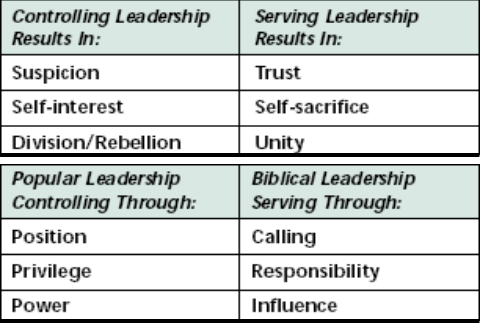
Succeeding at Ministry to Men in the Local Church – Part I: The Key Ingredients
What must be included in order to have a successful, life-changing Men’s Ministry? Although there are many important elements, the following key ingredients are essential:
1. The senior pastor’s enthusiastic support:
This is the #1 ingredient. Without the support of the senior pastor – not only in word, but involvement – your Men’s Ministry will never develop. You can rise to no higher level than the vision your senior pastor has for Men’s Ministry. Anything less is pushing rope.
2. A Men’s Ministry Leader passionate about reaching other men:
We reproduce after our image; consequently, men will generally attain no greater walk with Christ than their leaders’ walk. The leader needs to be:
- A man that “walks the talk.”
- A man that is humble and teachable.
- A man that understands that truth is assimilated in the context of relationships; therefore, it is only in relationships that men are transformed into Christ-likeness.
- A “wounded healer” who knows that love will find a way; indifference will find an excuse.
- A man who understands that the depth of relationships is directly proportional to the level of conflict we are willing to work through (i.e., conflict is the doorway to intimacy – Gary Smalley).
- A faithful man – Now what is sought in stewards is that one be found faithful. (1 Corinthians 4:2 NET)
- A man that understands that grace is not an excuse for carnality, but rather it teaches and causes us to do what the harder truth of the New Testament demands.
- A man that lives to honor Christ Jesus, in the power of the Holy Spirit, thereby glorifying God the Father.
- A man that understands and emulates Biblical servant leadership.

- A leader who understands leadership is influence – John Maxwell
Leadership
Equipper
Attitude
Dreamer
Excellence
Relationships
3. A Committed Leadership Team:
Led by Called, Motivated, and Trained Leaders
As in any successful organization, capable leadership is essential. In spiritual leadership, men who lead must first serve.
While many godly men should take active leadership roles, the key man should be called by God and gifted by the Holy Spirit to lead the Men’s Ministry. Other men gifted for leadership should head segments of the ministry. Some of these men may subsequently become Men’s Ministry Director. Identifying and calling these men is vital to achieving a vibrant and lasting ministry.
It is essential to establish a core group of leaders who are willing to commit to:
- the personal pursuit of God
- building relationships
- exemplifying unity
- modeling mutual submission
Only after personally entering into that pursuit can leaders effectively and authentically disciple other men, calling them to do the same. Jesus provided us with the perfect model for discipleship. His model is one of reproduction (relationship), not production (programs). He modeled His message and lived it out through relationships:
Come to me, all you who are weary and burdened, and I will give you rest. Take my yoke on you and learn from me, because I am gentle and humble in heart, and you will find rest for your souls. For my yoke is easy to bear, and my load is not hard to carry.” (Matthew 11:28–30)
As leaders, we must be willing to allow God to reproduce His life in us as we commit to walking with Him daily. Only when the Living Word has produced godly fruit in us can we come together in relationship with one another just as Jesus did with the apostles. Then we are able to model and reproduce the passionate pursuit of God.
Pull together a leadership team of four to twelve men who want to see God do something among the men in your church. Meet as brothers once a week and begin building among each other what you hope to build among the men of your church. Spend your time together in Bible study and prayer. Don’t spend your time in an “operations” type meeting, which is the tendency.
Challenge each of your leaders to start a discipleship group of his own.
Identify men who are disciples and are ready to move to the next level. Share your vision. Don’t waste time trying to persuade men not that interested — they will only pull you down and hold you back later.
If you don’t have men ready, then spend the time to disciple some potential leaders until they catch your vision. Don’t worry about how much time it takes — the investment will be worth it in the end.
Think long term. Richard Foster well said, “Our tendency is to overestimate what we can accomplish in one year, but underestimate what we can accomplish in ten years.” Remember, it takes a long time to make a disciple.
Encourage each leader to live his life in such a way that others can tell he has been “with Jesus.”
When they saw the boldness of Peter and John, and discovered that they were uneducated and ordinary men, they were amazed and recognized these men had been with Jesus. (Acts 4:13 NET)
As a team, encourage the men to become to each other what they want their church to become. That will create a model so attractive that other men will then want to be part of it. As Tom Skinner often said, “We must become the live demonstration here on earth of what is happening in heaven so that any time anyone wants to know what is happening in heaven all they have to do is check with us.”
At each church where we go and speak, we tell the staff that if they only relate to each other as a committee, then they will reproduce a church full of committees. But, if they will relate to each other as brothers and build loving relationships, they will reproduce a church full of brothers and sisters in Christ.
It’s the same for our men’s ministry. If we only get together as a planning committee, we will never show men the model of what we want them to become. The leadership team must become the model — the live demonstration — of what we want to reproduce. The other men in our church will emulate our leadership.
Where will you find the men to make up your ministry leadership team? They are probably right under your nose. Can you already identify the leaders of your team? If not, look for these qualities in the men you want to join you in leadership:
Servant spirit: In Mark 10:42-45, Jesus shared with His disciples the key element in spiritual leadership. He told them that the way up is down, that the person who will lead is the one who will serve. Our society is obsessed with climbing the ladder, upscaling, promotions and upward mobility. Jesus declared that those who will lead in the kingdom of God will be obsessed with descending the ladder, downscaling, spiritual demotions and downward mobility. Those who lead will be servants to all.
Jesus called them and said to them, “You know that those who are recognized as rulers of the Gentiles lord it over them, and those in high positions use their authority over them. But it is not this way among you. Instead whoever wants to be great among you must be your servant, and whoever wants to be first among you must be the slave of all. For even the Son of Man did not come to be served but to serve, and to give his life as a ransom for many.” (Mark 10:42–45)
It is easy to find men who want to be involved in ministry if they can start at the top and don’t have to do ordinary, dirty jobs. They want to be up in the front teaching or around the table making decisions, not in the back making coffee or setting up chairs. Some men feel that they are above certain tasks. They import their marketplace position, power and philosophy, believing that it will work in the church. It doesn’t, and it shouldn’t. Getting a ministry going requires an enormous amount of work. Some tasks–making calls, compiling surveys, sending out mailings–are repetitious and menial. But, they need to be done. One man on your leadership team who thinks he is above that kind of work breeds instant division.
Character: It isn’t how you look, where you work, what you have, whom you know or what you know that counts. It is who you are when no one else is looking. It is a man’s character that counts.
Men of character drive real ministry. A great passage on leadership is 1 Samuel 16:7.
But the Lord said to Samuel, “Don’t be impressed by his appearance or his height, for I have rejected him. God does not view things the way men do. People look on the outward appearance, but the Lord looks at the heart.” (1 Samuel 16:7)
God told Samuel not to look at a man’s outward appearance. God looks at the heart. This is a key principle for selecting a leadership team. Some additional helpful guidelines are the lists Paul gave to Timothy for selecting elders and deacons:
This saying is trustworthy: “If someone aspires to the office of overseer, he desires a good work.” The overseer then must be above reproach, the husband of one wife, temperate, self-controlled, respectable, hospitable, an able teacher, not a drunkard, not violent, but gentle, not contentious, free from the love of money. He must manage his own household well and keep his children in control without losing his dignity.But if someone does not know how to manage his own household, how will he care for the church of God? He must not be a recent convert or he may become arrogant and fall into the punishment that the devil will exact.And he must be well thought of by those outside the faith, so that he may not fall into disgrace and be caught by the devil’s trap. Deacons likewise must be dignified, not two-faced, not given to excessive drinking, not greedy for gain, holding to the mystery of the faith with a clear conscience. And these also must be tested first and then let them serve as deacons if they are found blameless. Likewise also their wives must be dignified, not slanderous, temperate, faithful in every respect. Deacons must be husbands of one wife and good managers of their children and their own households. For those who have served well as deacons gain a good standing for themselves and great boldness in the faith that is in Christ Jesus. (1 Timothy 3:1–13)
1 Timothy 4:12 offers one of the best measuring tools for choosing leaders. It provides five standards to measure a man’s character:
Let no one look down on you because you are young, but set an example for the believers in your speech, conduct, love, faithfulness, and purity. (1 Timothy 4:12 NET)
Speech: Does he use his tongue to tear down or build up? Does he lie or speak the truth? Is he sarcastic and cutting or loving and kind?
Life: Is there consistency between his behavior or Sunday and Monday? Does he visualize what he verbalizes, behaving in accordance with what he believes? There is no room on a leadership team for someone who doesn’t live his faith in the marketplace.
Love: Is he interested in others’ well-being? Does he show compassion and tenderness toward others?
Faith: Is he willing to take wise risks and live on the edge? Is he willing to trust God, or does he live purely by human strength?
Purity: Is this man seeking to be morally, ethically and spiritually pure before God?
Godliness: The greatest gift your leadership team can give the men of your church is their personal holiness. Nothing is more important in leading other men to Christ than a vital, authentic relationship with Jesus. In selecting men to be on your leadership team, start with men you know who are in love with Jesus. Here are some things to look for:
Strong private life: Do they regularly spend time with Jesus? When you get together with men, ask them what they are learning in their daily devotions. Unless they regularly spend time with Jesus, they will have nothing to give to others. What they are in private with Jesus will directly influence what they do in public with other men.
Obedience: Are they seeking to obey God in all areas of life, or is there an area in which they knowingly continue to sin? Are they open to accountability to others for their life and actions?
Worship: Godly men love to worship. They make sure they regularly meet with God’s people to worship. If a man’s hobby or favorite spectator sport regularly causes him to miss Sunday worship, he’s making a loud statement about his priorities.
Passion: To have passion is to be enthusiastic about what you are doing, to eagerly anticipate the next time you get together with your men. You love what you are doing and are thankful that God has given you gifts and the incredible privilege of serving Him. When you interview men for your leadership team, ask these questions to gauge their passion for ministry: What is your vision for men’s ministry? What gets you the most excited about serving? Where do you see yourself fitting in? From these questions and others, you will get a sense of whether they really want to do ministry or are motivated by guilt or obligation.
Giftedness: The final quality to seek in a man for your leadership team is giftedness. Every man is gifted, but you must make sure that he is gifted for his area of responsibility. Our natural tendency is to surround ourselves with men just like us–those we want as friends. Men with different gifts think differently.
Sharing the Leadership is Key

There are several ways to organize your men’s group and the associated ministries and mission work. Sid Woodruff’s book Drawing Men to God has good ideas for the right structure for your men’s ministry. The important thing is to get as many men involved in leadership as possible and as needed for the various ministries, mission teams and special projects and events that you have. Also, spreading the leadership responsibility will lighten the load on the Director and other key leaders.
Remember, your Men’s Ministry must live on and grow after the initial or current leadership team steps down. Therefore, make sure you identify and train future leaders. Having men head up teams they feel called to lead is the best way to share the load and prepare for the future.

4. The Right Strategy:
Have a Purpose Statement that is Christ-Centered
A purpose statement provides focus and direction. It helps you screen out distractions and hone in on priority activities. Men want to be a part of something bigger than themselves that is going somewhere.
Without a purpose statement, we can “begin” without really knowing where we want to “end.”
Consequently, we have no valid measure of effectiveness.
Men come together in churches for many reasons. These are often groups focused primarily on fellowship, civic interest, programs and/or church work projects. While these “men’s clubs” in the church have value, they are often program-driven and not a true ministry in which men are growing together in Christ and doing His will. To respond to men’s true spiritual needs, a successful Men’s Ministry must put Christ at the center and focus on spiritual development, giftedness, and outreach.
Be Purpose-Driven Rather than Event-Driven
Too often, local church Men’s Ministries have been driven by events rather than purpose. We schedule events —monthly men’s breakfasts, an annual retreat, etc. — and before long men perceive that the events are the ministry. In an event-driven ministry, attendance at monthly men’s breakfasts, annual retreats, etc. becomes the measure of success. In a purpose-driven ministry, the fulfillment of the purpose statement is the measure of success – independent of attendance.
We can become discouraged when men don’t attend events if that is how we measure the effectiveness of our ministry. Yet, often men do not come because there isn’t any larger purpose to the events.
If we are not careful, we can “begin” without really knowing where we want to “end.” It is easy to get caught up in the break-neck pace of men’s ministry and “event” yourself to mediocrity.
Consequently, every event that you schedule as a part of your men’s ministry should serve your overall purpose. At the event, explicitly communicate to the men how this event fits in the larger context of your men’s ministry and even the purpose of the church. Explain to them what you hope to accomplish through the activity and how it contributes to accomplishing your overall goals.
Be Relationship-Based Rather than Task-Oriented
The foundation of a successful men’s ministry is building relationships. Without real and deep relationships, men will feel no sense of community with one another. If we only call men together to “do,” there will be no glue to hold them together when the planned event is over. Events attract men, relationships make them stick.
What this means at a practical level is that you should give men plenty of time for fellowship and conversation at your events. Don’t set such a rigid agenda at your events that men don’t have the time to really get to know one another.
You have probably been at men’s events where the emcee made the men feel guilty for standing around talking instead of “getting on with the program.” In reality, they were doing ministry. Developing relationships is a key task of any men’s ministry. In fact, the relationship is the task.
Have a reproductive process, not a production process (i.e., programs).
Programs focus on behavioral issues, or the “doing.” Reproductive processes focus on the transformational changes that must take place to “become” like Christ. In reproduction, the process is only the instrument that the Spirit of God uses to make us like Christ. The process by itself does not bring about the change
The reproductive process creates an environment where the Spirit is encouraged and has the freedom to work in our hearts. The New Testament clearly indicates that it is the Holy Spirit that brings about change and transformation in God’s people. The Holy Spirit transforms us as we pursue an intimate relationship with God the Father through Jesus Christ. The reproduction process occurs as we invite others to join our pursuit of God
Foster a Masculine Ministry Environment

In his book, “How to Build a Life-Changing Men’s Ministry,” Steve Sonderman says, “if ever there was a time in history when local churches needed to build men individually and corporately, it is now.” As our world seems to be going from bad to worse, men desperately need and are looking for, a ministry uniquely designed to reach them as men, focused on the issues they deal with. The tremendous turnout and response to the large Promise Keepers gatherings in recent years is clear evidence.
Sonderman suggests the following conditions of men. They serve as critical reasons why men should be encouraged to join together to build authentic Christian brotherhood in the church.
Men don’t do “brotherhood” naturally. The American male is often:
- Friendless …in a world of competition, comparison, isolation, individualism, and self-sufficiency.
- Emotionally Isolated…seeing himself as what he does, not how he feels, having heard since childhood that men do not show emotions.
- Confused over Masculinity…often an identity crisis with our ever-changing role models, they need to discover their true masculine identity in Christ.
- Success Driven…convinced that what he does and what he has is who he is.
- Spiritually Searching…with hundreds of thousands responding to Christian events, retreats, Promise Keeper conferences, mission projects, during which large numbers are committing or recommitting their lives to Christ. Then what?
Whereas women tend to enjoy getting together and sharing with each other, men don’t necessarily think about doing that. Men tend to be more activity-oriented and like to be involved in “projects.” But, by their nature, men often isolate themselves relationally.
Our churches need to become “male-friendly” places, with intentional disciple-making men’s ministries…ministries in which men can “comfortably” come together to build trusting relationships, through which they can help each other know and trust Christ and grow in His likeness. Where they can become true spiritual heads of their household (Eph 5:22-33). Where they can meet on a regular basis to worship with other men through song and prayer. Where they can share their walk with Christ, as well as their feelings, failures, and fears. Where they can support the spiritual growth of youth in the church, and talk about ways to raise godly children and grandchildren in a godless society. Where they can encourage each other to discover and use their unique spiritual gifts to serve others for Christ and to boldly reach out and minister to other men in a lost world.
When Christ formed his men’s ministry, he selected men of all backgrounds to be united in Him. He taught and encouraged them to minister to each other. Then He told His disciples to finish the work that the Father had given Him to do. Likewise, Christ tells us to help each other to “grow up in Him” and then turn our eyes to the mission fields before us. Therefore, the general objective of Men’s Ministry is to help each other become godly, Biblical men…men of integrity, intimacy, identity, and influence (Sonderman), men committed to growing in Christ and doing His work. In his book, Why Men Hate Going to Church, David Murrow says, “Masculine relationships build the church, and they build men.” We agree!
Make disciples and pray for workers
The Bible tells us, “Go and make disciples…. baptizing them in the name of the Father and of the Son and of the Holy Spirit” (Matthew 28:19). Often we get this confused with, “Go and make workers. . . browbeating them in the name of the Father and of the Son and of the Holy Spirit.”
The Bible doesn’t call us to make “workers,” but “disciples.” The purpose of ministry, then, is to make disciples, not workers. Men don’t enjoy being made to go on a forced march. True disciples will become workers out of the overflow of their growing relationship with Jesus Christ (John 14:15).
The Bible does, however, call us to “pray” for workers: “The harvest is so great, and the workers are so few,” Jesus told his disciples. “So, pray to the one in charge of the harvesting, and ask Him to recruit more workers for His harvest fields” (Matthew 9:37-38, TLB).
Too often we try to “make workers, and pray for disciples.” We set the agenda for our ministry and then pester men until they get involved. We make sure that we have all our slots for workers filled and then pray that somehow, someway, someone might become a disciple.
Here’s a key idea: If your church and men’s ministry focuses on getting its men to do “works” rather than “making disciples,” it will burn out them out. You will lose all your steam.
Establish a continuous pipeline

Men’s Ministry…getting men from where we are, to where God wants us to be
Men must be introduced to the saving power of Christ so that they become spiritual children.
The spiritual children must then be matured by the Word of God until the Truth is in them and they effectively become spiritual young men (i.e., warriors).
The spiritual young men must be challenged and encouraged to know God intimately, beginning to know Him in His entirety, becoming spiritual fathers.
The spiritual fathers will then reproduce the next generation of spiritual fathers.
Through this concept the Church can restore the reproductive, intergenerational model of the first-century church, establishing a pathway to take men from immaturity to maturity. We model Christ’s leadership when the leadership team practices the pathway, becomes spiritually mature, and then reproduces this into the men of the church.
(1) Left-click on the underlined phrase to open another article in a different tab with more explanation.
(2) This article adapted from the works of:
- Beach Road Baptist Church Men’s Ministry, Southport, NC – Mel Cornillaud
- Success that Matters – Pat Morley
- Building Brothers – Dan Shaffer
- Drawing Men to God – Sid Woodruff
- UnveilinGlory – Bob Sjogren




